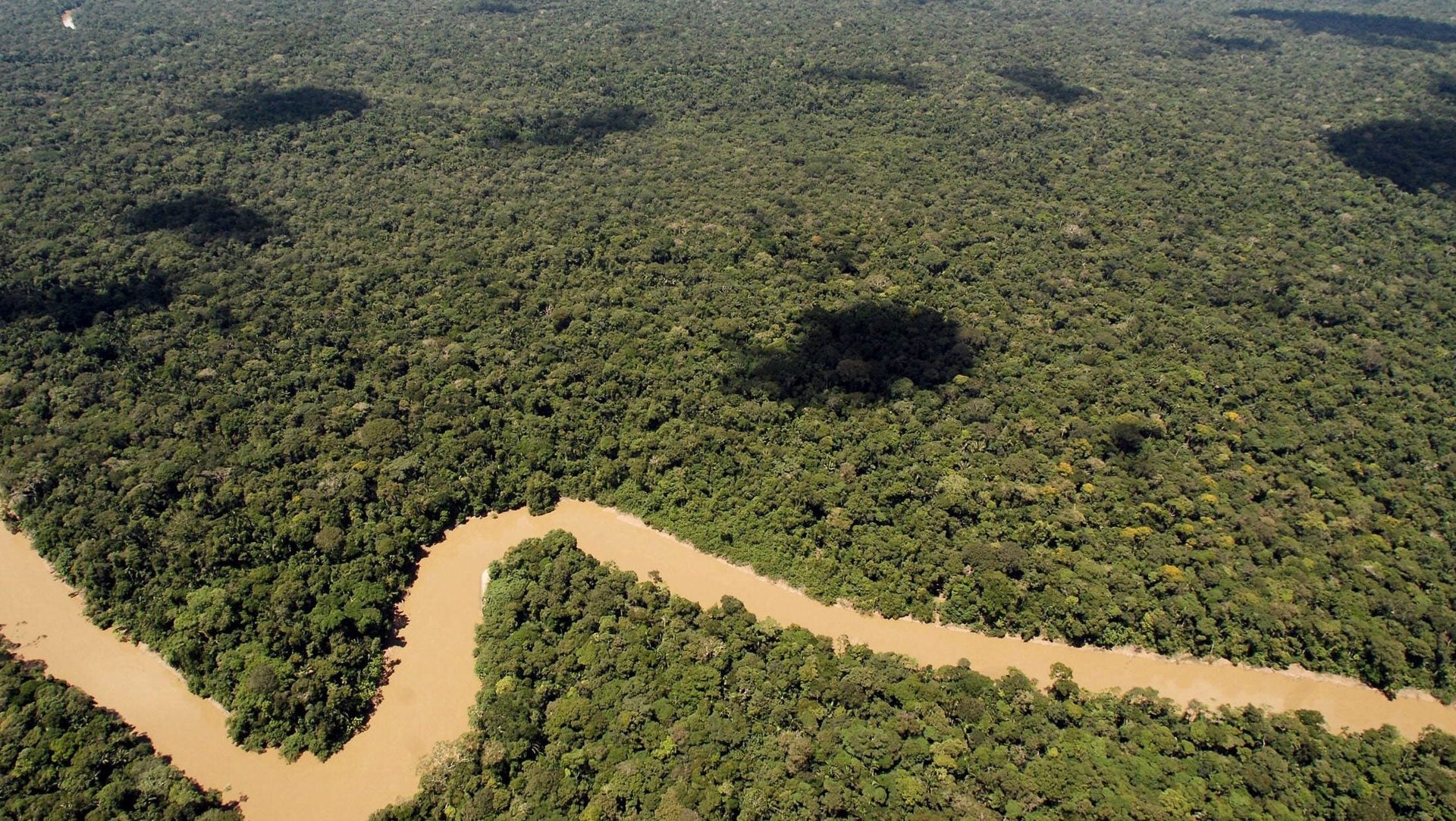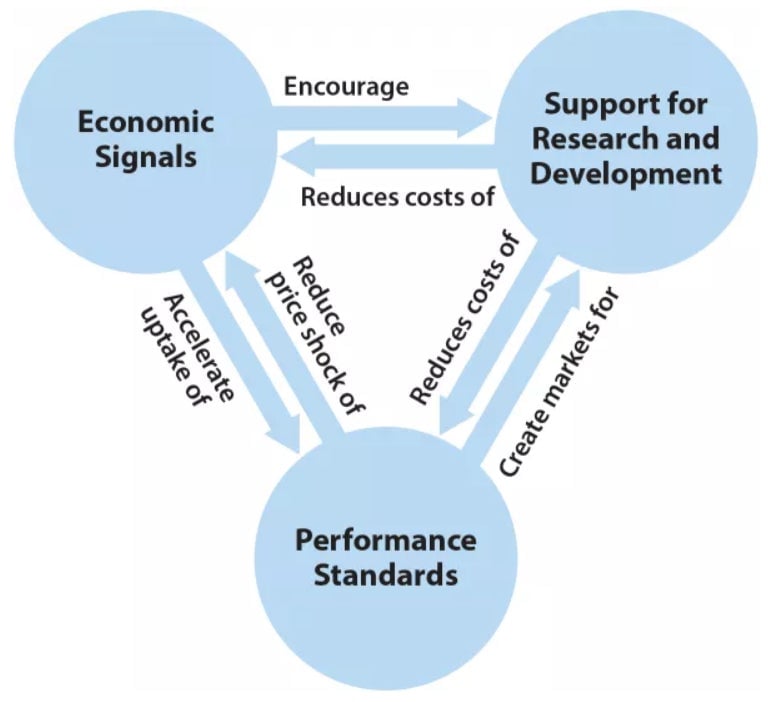The Race to Zero Emissions: Trees everywhere, stranded assets, dirty words
Hello Quartz readers!

Hello Quartz readers!
On Thursday at 1pm ET/6pm BST, we’ll be hosting a conference call for Quartz members. I’ll answer your questions on the profile we published of Vicki Hollub, CEO of Occidental Petroleum, and her quest to create the first carbon-neutral oil company. You can check out the other benefits of becoming a member and subscribe here.
Here’s what happened over the past week that helped or harmed the world’s chances to cut greenhouse-gas emissions to zero.

🔽 Decreases emissions
1️⃣ A new study says planting trees in an area the size of the US could store two-thirds of the carbon humans have emitted by burning fossil fuels. This extraordinary claim came under plenty of scrutiny and exposed a few flaws. The study shows just how much more of the world could be turned into forest. The actual conclusion is less surprising: planting lots of trees is a good idea, but it won’t be enough unless we cut emissions through other means.
2️⃣ India is planning to spend $330 billion to increase its renewables capacity to 500 GW by 2030. But coal is likely to continue to play a dominant role in meeting the country’s energy demands.
3️⃣ Oil giant BP has said that some of its oil “won’t see the light of day.” Though it won’t say just how much, about 60% of its 25 billion barrels of oil are unproven reserves and at risk of becoming stranded assets.
4️⃣ Chubb, the US’s largest commercial insurance company, will not insure projects connected to coal. It joins a dozen insurers in Europe and Australia who have made similar vows. The news comes as a third major US coal company filed for bankruptcy in the past three months.
5️⃣ Electric vehicle news round up: India wants to become the “Detroit of EVs,” but the incentives announced in the budget last week will not make that dream a reality. China’s stricter air-pollution rules are bad news for fossil-fuel cars and good news for new-energy vehicles. Volkswagen will share its EV platform with Ford. BMW’s CEO will step down after the luxury automaker fell behind on electric cars. Lee Iacocca, former president of Chrysler, died this week at age 94; he was an unlikely champion of electric bikes and scooters later in life.
The climate policy wonk

It’s clear the world needs to cut emissions—and soon. But how do we do it? This conversation between Hal Harvey, CEO of Energy Innovation, an energy-policy firm, and Vox’s David Roberts provides some clear answers. The image below maps it out.
0️⃣ Net-zero (for now)
1️⃣ “Oil” and “gas” have become dirty words on the London Stock Exchange. The companies have been recategorized as “non-renewables.”
2️⃣ Via the New York Times: “In the last four years, roughly 175 oil and gas companies in the US and Canada with debts totaling about $100 billion have filed for bankruptcy protection. The value of oil and gas stocks as a proportion of the S&P 500 over the last six years has dropped to about 4.6%, from 8.7%.”
3️⃣ More than 300 coal power plants have been retired since 2010 in the US. What to do with the sites? In Pennsylvania, the answer is to convert one into a cannabis-growing factory.
4️⃣ The UK’s former chief scientific adviser says the world should be open to ocean fertilization. This negative-emissions technology involves dumping large amounts of iron to stimulate algal blooms, which die and sink to the bottom of the ocean, trapping away carbon. Most experts don’t consider it an effective strategy.
5️⃣ Attribution science round up: France’s heatwave was made five times more likely by climate change. The recent spike in wildfires in the UK may be down to climate change. A year after deadly flooding in Japan, other parts of the country are in similar trouble thanks to climate change.
Share this please
Among all the individual actions that can help fight climate change, the most effective one is to talk about the crisis with people who don’t think or don’t realize it’s a problem. I’m pretty sure you know someone who falls in that category. Please forward them this email or share this link.

🔼 Increases emissions
1️⃣ The world is suffering a climate-related disaster every week, says the UN. News from just this past week makes it feel worse: A weak monsoon in India has farmers worried. At the same time, residents of Mumbai are victims of the worst flood in 14 years. A massive tornado in northeast China killed six people. Unprecedented wildfires in the Arctic have released 50 million metric tons of carbon dioxide in June, and many are still raging.
2️⃣ There is now more carbon-emitting infrastructure than would be compatible with climate goals set under the Paris climate agreement. That means, if we continue to use existing infrastructure to the end of its life without building any more, we will still cross the 1.5°C threshold. If this isn’t the strongest endorsement for scaling up carbon capture, I don’t know what is.
3️⃣ Facing opposition from pro-nuclear lobby groups, Germany’s environment minister has said that the country’s nuclear phase out, set for 2022, will go ahead as planned. It’s worth reading this deep dive from Michael Liebreich, founder of Bloomberg New Energy Finance, on why early retirement of existing nuclear power plants is a bad idea.
4️⃣ We’re losing a football pitch-size area of Amazon rainforest every minute. Most of it is being converted into pastures for cattle serving the world’s growing appetite for meat.
5️⃣ The falling cost of renewables is making some governments rethink their old commitments. The southern Indian state of Andhra Pradesh wants to review and negotiate new terms for old power-purchase agreements, which have been crucial in setting stable revenue streams and helping lower the cost of renewables in the first place.
Stats to remember
As of July 1, the concentration of carbon dioxide in the atmosphere was 413.76 ppm. While global average temperature is about 1°C higher than pre-industrial times, places like Svalbard are experiencing an average temperature rise of 4°C. That’s causing all sorts of chaos for the Arctic haven.
Have a great week ahead. Please send tips to [email protected].